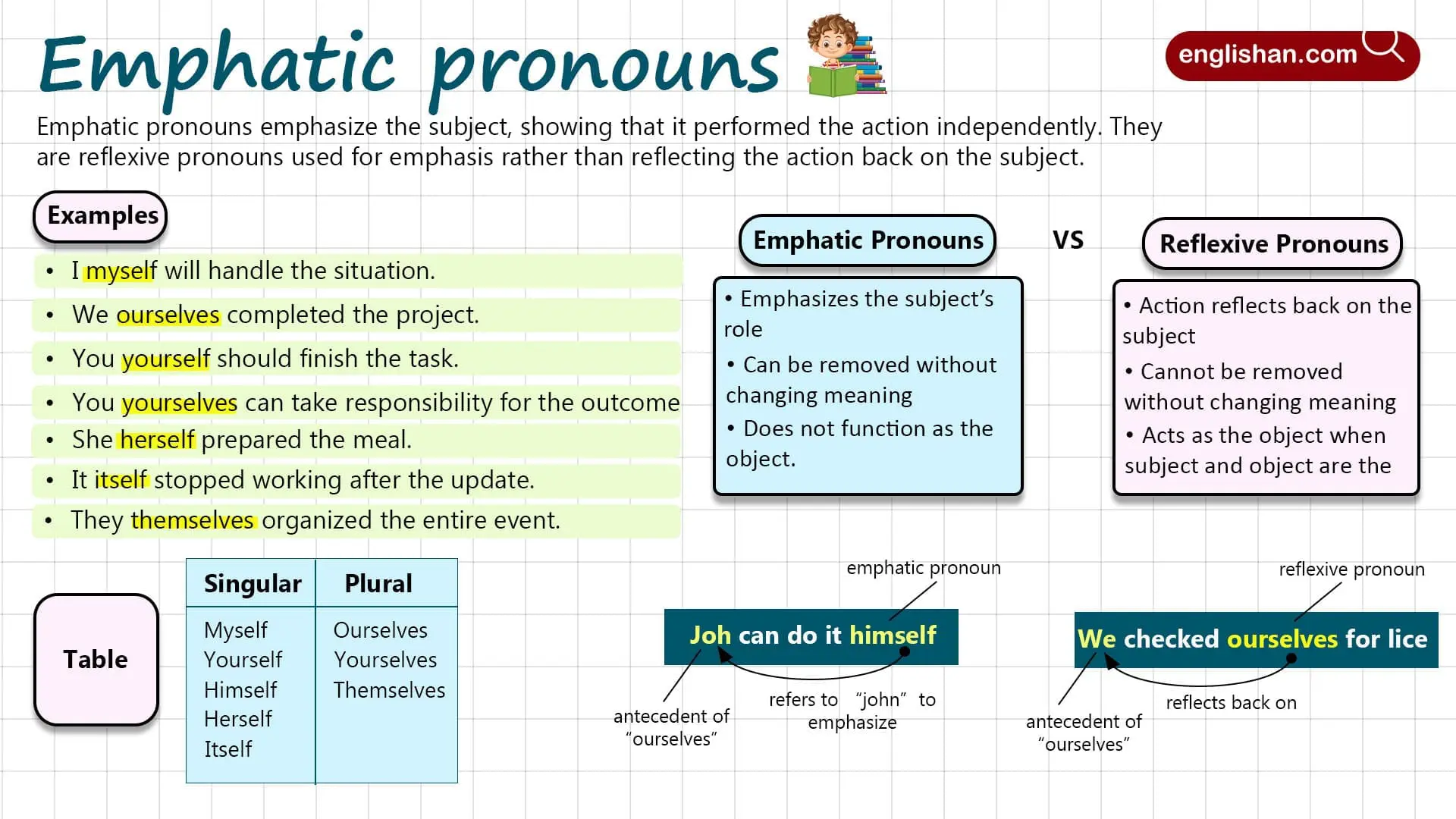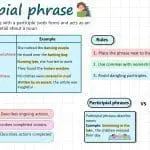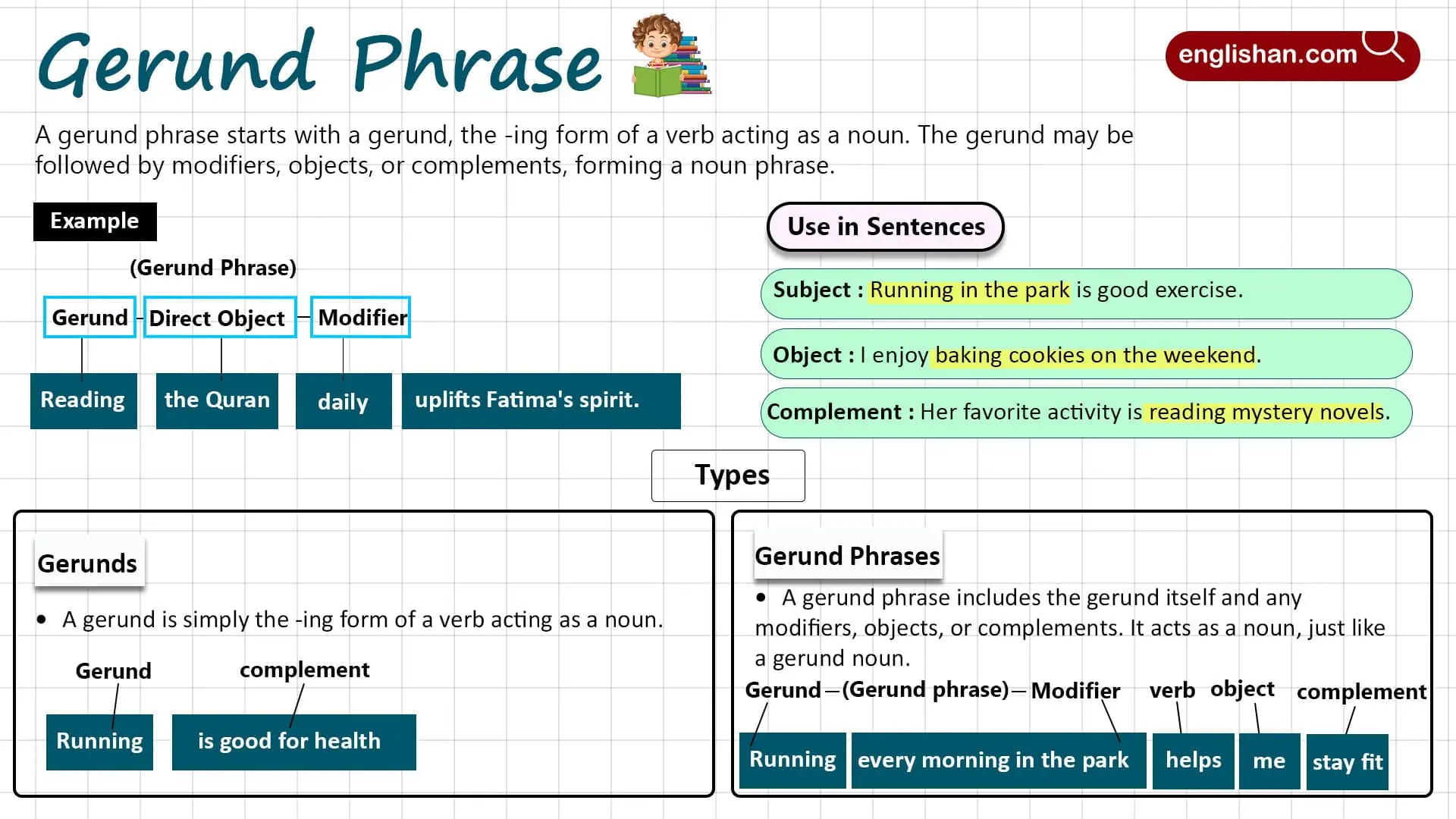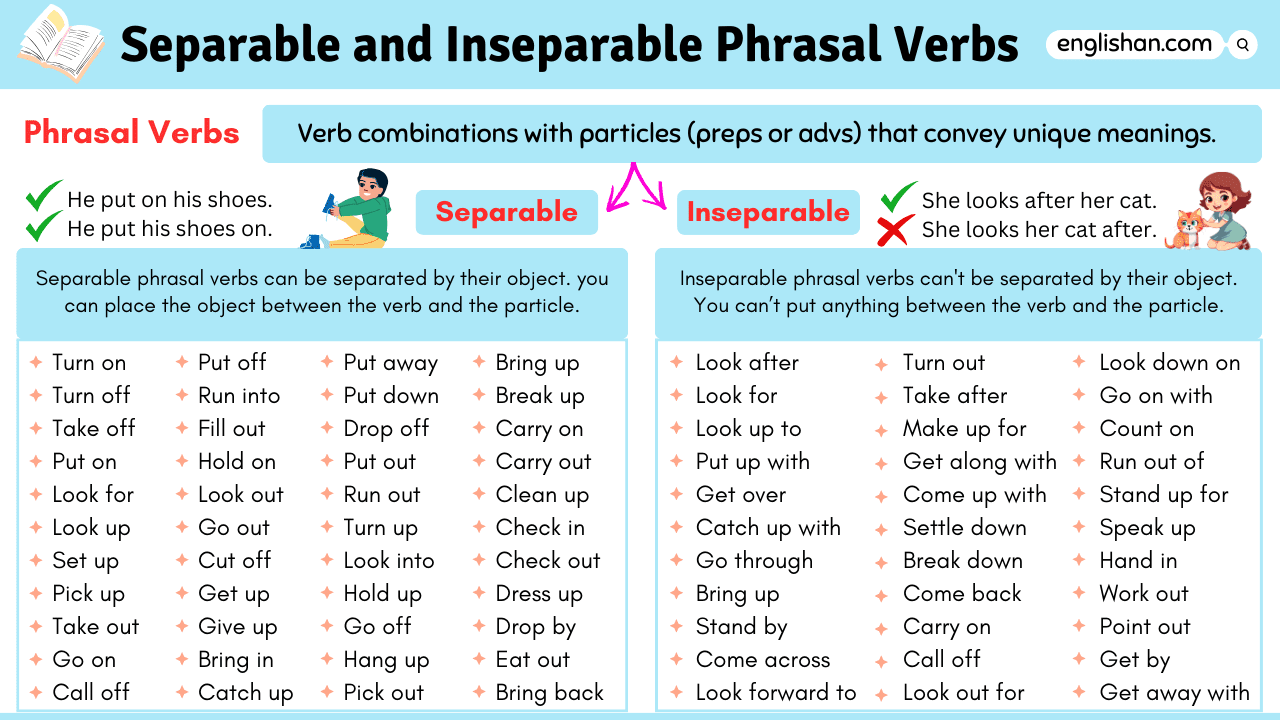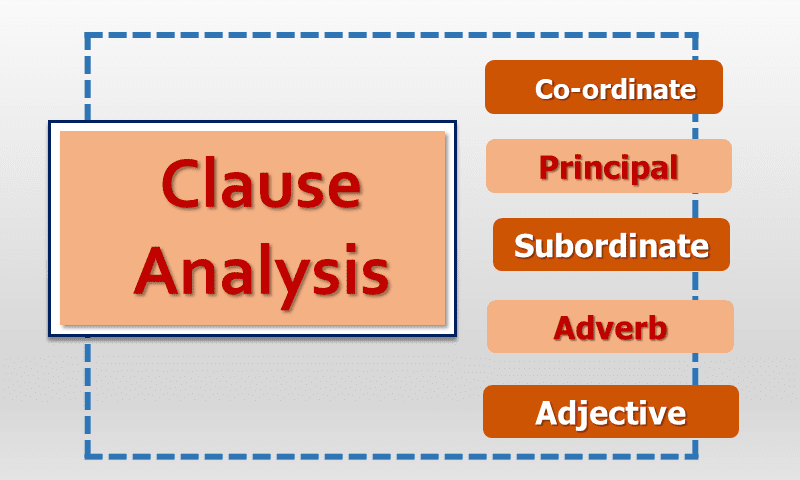Emphatic pronouns are words like myself, yourself, and himself that are used to add stress to who did something. They come right after the noun or pronoun to show emphasis. These pronouns don’t change the meaning but just make it stronger. In this post, you will learn what they are, how to use them, and where they go in a sentence.
What Are Emphatic Pronouns?
Emphatic pronouns are words like myself, yourself, or themselves used to stress who did the action in a sentence. They show that the subject did something on their own or with extra focus. For example, in “I myself fixed the problem,” the word myself puts extra emphasis on I doing it personally.

How to Form Emphatic Pronouns
Emphatic pronouns are formed by adding “-self” (for singular) or “-selves” (for plural) to specific personal pronouns. Here’s a clear breakdown:
| Singular | Plural |
| Myself | Ourselves |
| Yourself | Yourselves |
| Himself | Themselves |
| Herself | |
| Itself |
In both placements, the emphasis is placed on the fact that the subject took action independently or with special involvement.
Emphatic Pronouns vs. Reflexive Pronouns
Emphatic and reflexive pronouns look the same, but they’re used differently. A reflexive pronoun shows the subject and object are the same person. An emphatic pronoun just adds extra stress to the subject and can be removed without changing the main meaning.
Reflexive Example: She hurt herself while playing.
(Herself shows she did the action to her own body.)
Emphatic Example: She herself cooked the entire meal.
(Herself adds focus — she did it, not someone else.)
Examples of Emphatic Pronouns
Here are examples to help understand the different ways emphatic pronouns are used:
- She herself solved the complicated math problem.
- We ourselves completed the project before the deadline.
- He himself admitted the mistake in the report.
- The students themselves organized the entire event.
- The machine itself stopped working after a power surge.
- You yourselves should take responsibility for the outcome.
- The manager himself signed off on the document.
In these examples, the pronouns myself, himself, themselves, yourself, and itself add emphasis to the subject, making the sentence more impactful.
Placement in Sentences
The placement of emphatic pronouns can alter the emphasis slightly. Here’s how they fit into different parts of a sentence:
- After the subject:
- The teacher herself graded the exams.
- The president himself delivered the speech.
- At the end of the sentence:
- We cleaned the entire house ourselves.
- The players won the match themselves.
In both cases, the use of emphatic pronouns underscores the subject’s role in performing the action.
Common Mistakes
Learners sometimes make the following mistakes with emphatic pronouns: For instance, they may misplace the pronoun or confuse it with a reflexive one.
- Incorrect Placement
Placing them incorrectly can confuse the sentence.
Myself, I will do it. ❌
I myself will do it. ✅
- Overuse
Using too many emphatic pronouns can make sentences sound repetitive or awkward.
The chef himself, the waiter himself, and the manager himself all handled the situation. ❌
The chef, the waiter, and the manager all handled the situation themselves. ✅
- Confusion with Reflexive Pronouns:
Sometimes learners use emphatic pronouns when reflexive pronouns are needed.
He gave the gift to myself. ❌
He gave the gift to me. ✅
Read More
